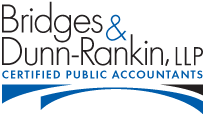Late Election Opportunity for Real Estate Professionals
By Kenneth H. Bridges, CPA, PFS August 2011
In 1986, concerned with the erosion of the tax base from the proliferation of tax shelters, Congress enacted the “passive loss rules” which provide, in general, that the losses from rental activities or from businesses in which you do not “materially participate” (generally defined as at least 500 hours per year) cannot be used to offset income from other sources like W-2 wages, interest, dividends, capital gains or businesses in which you do materially participate.
Generally, any rental activity is automatically considered to be passive, regardless of the number or hour spent on it. An exception to this general rule, however, exists for “real estate professionals”. Under the exception, a real estate professional is not subject to the passive loss rules with respect to rental activities in which he otherwise meets the material participation standards. A “real estate professional” for purposes of this exception is one who spends at least 750 hours during the year on real estate activities and more than ½ his or her working hours on real estate. For purposes of the 500-hour rule (and other material participation standards), each rental activity is generally viewed separately. However, a real estate professional may make an election to aggregate all rental activities (which makes it easier to meet the 500-hours test or another one of the material participation standards).
The election to aggregate rental activities is made by filing a statement with the taxpayer’s original return for the year in which he or she wishes the election to take effect.
In a recent Revenue Procedure (2011-34), the IRS has provided a procedure whereby taxpayers who failed to file an aggregation election statement with their returns can now do so with an amended return, provided they otherwise took the aggregation position on their original timely-filed returns and had reasonable cause for failure to attach the election statement. This relief procedure could be very beneficial to a real estate professional who has deducted rental losses which would otherwise be suspended under the passive loss rules.
Kenneth H. Bridges, CPA, PFS is a partner with Bridges & Dunn-Rankin, LLP an Atlanta-based CPA firm.
This article is presented for educational and informational purposes only, and is not intended to constitute legal, tax or accounting advice. The article provides only a very general summary of complex rules. For advice on how these rules may apply to your specific situation, contact a professional tax advisor.
